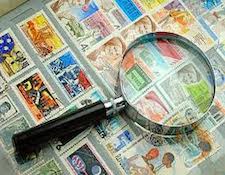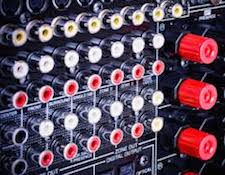It’s the time of year for saving money!
For most audiophiles, reading books and the variety of available web sites is something typically done for basic entertainment and research. It is one potential way to learn about new things, have questions answered and find out more about our hobby. Of the web sites I generally follow, I am always impressed at the level of scientific intellect displayed by many of the respondents to the articles. Some very bright people are audiophiles.
 In fact, our hobby is quite scientific. When we position and reposition speakers to achieve optimal soundstage, we are basically conducting a physics experiment. Playback in general, or the practice of acoustics, is a wide ranging field of scientific study. Yet we have the felicitous joy of simply hearing a song on a stereo. A profoundly simple act borne by ingenious complexity.
In fact, our hobby is quite scientific. When we position and reposition speakers to achieve optimal soundstage, we are basically conducting a physics experiment. Playback in general, or the practice of acoustics, is a wide ranging field of scientific study. Yet we have the felicitous joy of simply hearing a song on a stereo. A profoundly simple act borne by ingenious complexity.
Consider some of the terms in our hobby – capacitance, frequency, ohms, decibels and watts to name a few. Our hobby has the singular uniqueness to be discussing something like how standing waves and first reflections affect sound quality one minute, and the next talking about how the cymbals sounded so lifelike. Why? Because they are part and parcel of each other – the latter being the result of the explanation of the former. I suspect that few other hobbies practice similar levels of scientific inquiry, particularly by the hobby’s proponents.
 Take stamp collecting for instance. So, you need a book, stamps, magnifying lens and some glue? I mean, what else, really? I don’t collect stamps and I’m certainly not denigrating doing so, but I doubt those that are stamp collectors spend much time discussing the chemical composition and adhesive properties of glue.
Take stamp collecting for instance. So, you need a book, stamps, magnifying lens and some glue? I mean, what else, really? I don’t collect stamps and I’m certainly not denigrating doing so, but I doubt those that are stamp collectors spend much time discussing the chemical composition and adhesive properties of glue.
What I find so fascinating about being an audiophile is we can make this hobby very simple or profoundly complex. “I want a stereo so I can listen to music.” Or, “I want to do a detailed study on the dielectric properties of audio cables, and, how the manufacturers set about making theirs operate optimally.” Similar examinations may also be made for every component in an audio system.
I say with presumed certainty that many, if not all of the stalwart designers in our industry have some measure of science background in general, and quite possibly physics specifically. To design audio products almost requires a degree in, or a commanding knowledge of, electronics. Yet the result of this brilliance requires the user to do little more than push a power button and select play. A task happily performed with a simple elegance that belies the complexity in how it works.
]]> For some audiophiles, this simple elegance is seldom considered. As long as the system powers up and music comes out, then all is well. For the more technically minded, however, detailed descriptions of various components are easily found. Typically, they are found in the brochures and web sites of the components themselves. This assures that a technically oriented customer may glimpse into the inner workings of the component. Or the customer not uniquely concerned about technicality can just read about how the thing sounds.
For some audiophiles, this simple elegance is seldom considered. As long as the system powers up and music comes out, then all is well. For the more technically minded, however, detailed descriptions of various components are easily found. Typically, they are found in the brochures and web sites of the components themselves. This assures that a technically oriented customer may glimpse into the inner workings of the component. Or the customer not uniquely concerned about technicality can just read about how the thing sounds.
Despite not being a scientist or an engineer, I always enjoy reading the responses to web articles written by engineers and scientists. I also like books on certain audio and acoustic subjects. I find both a way for me to become better informed and perhaps confirm or contradict an opinion I had or was considering. It also helps me in choosing which components I might seriously consider demoing in my system. Knowledge is a powerful ally, particularly when considering an audio system. Why? Because of the almost limitless sonic variables brought about by various combinations of equipment.
 When the cost of high end componentry is then also considered, it becomes even more important for the audiophile to be as informed as possible. Because audio discoveries that offer sonic achievement alongside cost savings is something to which all audio enthusiasts willingly subscribe.
When the cost of high end componentry is then also considered, it becomes even more important for the audiophile to be as informed as possible. Because audio discoveries that offer sonic achievement alongside cost savings is something to which all audio enthusiasts willingly subscribe.
Our hobby is one of personal gratification because we listen to music we love on a playback system that greatly improves the sound. We can become enraptured in the music and not concern ourselves how exactly it was created. We can also make detailed and probing examinations why the music sounds as it does, and, how we may improve the sonics we hear. Ours is a hobby steeped in science, executed with complexity, and enjoyed in complete simplicity. We have as our main task only to sit down and listen. All in all, pretty impressive for a hobby.





